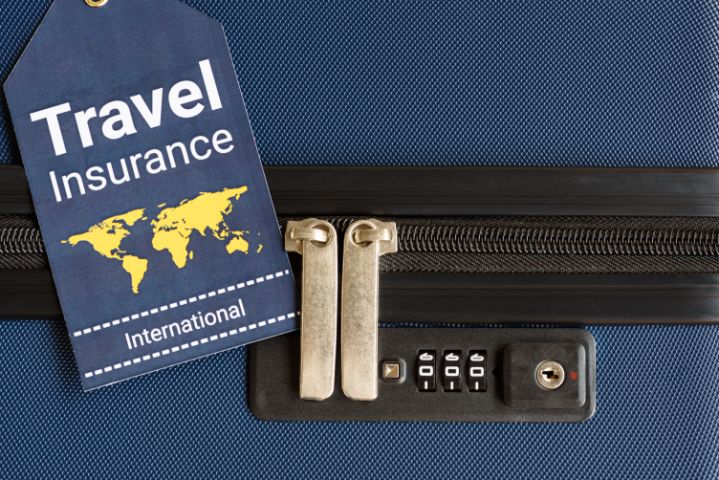Medical Emergencies In Bali: Role Of Travel Insurance
Medical Emergencies In Bali: Role Of Travel Insurance

As one of the most beautiful islands in the world, Bali is a dream location for international tourists with its gorgeous beaches, lush green jungles, and rich cultural life. However, as in any travel hot zone, medical emergencies occur when they are least expected. Even a routine doctor visit can become a complicated and expensive affair for travellers unfamiliar with the local healthcare system.
That is where getting travel insurance for Bali becomes more than a formality—it turns into your safety net. In this guide, we’ll explore the common medical emergencies tourists face in Bali, the real costs involved, and how travel insurance helps you stay financially and medically secure.
Common Medical Emergencies Faced by Tourists in Bali
•Road Accidents: Scooter crashes often result in fractures, head injuries, or abrasions requiring urgent hospital treatment.
•Food Poisoning and Gastroenteritis: Consuming unfamiliar or improperly handled food can lead to vomiting, diarrhoea, and dehydration.
•Dehydration and Heatstroke: Bali’s heat and humidity can cause severe dehydration or heat-related illnesses.
•Dengue Fever and Other Tropical Diseases: Mosquito bites can transmit dengue, requiring hospitalisation.
•Surfing and Diving Injuries: Reef cuts, sprains, or pressure-related injuries are common among water sports enthusiasts.
•Animal Bites: Monkey bites or scratches can require rabies shots and wound care.
Cost of Medical Care in Bali
Bali’s healthcare system includes both public and private hospitals. Tourists usually opt for private facilities due to their higher quality and faster service.
•General consultation at a private clinic: ₹2,075–₹3,320
•Hospital room per night: ₹8,300–₹24,900
•Emergency surgery: ₹1,24,500–₹4,15,000+
•Medical evacuation to Singapore/Australia: ₹16,60,000–₹74,70,000
How Travel Insurance Supports You in a Medical Emergency
Comprehensive travel insurance typically includes:
•Hospitalisation and outpatient treatment
•Doctor consultation fees and diagnostics
•Ambulance charges
•Medical evacuation or repatriation
•Emergency dental treatment
•24x7 assistance services for coordination
Advantages of Having Travel Insurance in Bali
•Admittance without large upfront payments
•Access to English-speaking doctors at private hospitals
•Faster emergency response and care coordination
•Digital and physical copies of policy make claims easier
Example: What Happens Without Insurance?
•Scooter accident in Canggu → fracture treatment: ₹66,000–₹99,600
•Surgery may cost ₹4,15,000+
•Medical evacuation could exceed ₹74,70,000
With insurance, most or all of these costs are covered.
Emergency Tips While in Bali
•Call your insurer’s emergency number immediately
•Save these local numbers: Ambulance: 118 or 112 | Police: 110
•Use top private hospitals: BIMC, Siloam, Kasih Ibu
•Carry your passport, insurance, and local contact address
•Don’t self-treat serious issues like fevers or animal bites
Prevention Tips
•Use mosquito repellents and wear long sleeves
•Drink only bottled/filtered water
•Avoid street food if sensitive
•Always wear a helmet on two-wheelers
•Pre-save hospital and insurance contact info
Medical Evacuation: A High-Cost Risk
In critical cases, evacuation to Singapore or Australia might be needed.
•Air ambulance costs: ₹16,60,000–₹74,70,000
•Additional costs: Medical team, repatriation, hospital transfer
Conclusion
Medical emergencies in Bali can happen without warning. The best approach is to be prepared. Travel insurance for Bali not only saves you money but ensures better and faster medical care. Always carry your policy and be cautious while enjoying the island's beauty.
FAQs
1. Does travel insurance cover pre-existing medical conditions?
Not always. Some plans allow add-ons if declared upfront.
2. What if I lose my insurance documents?
Contact your insurer immediately. Most offer digital copies via email or app.
3. Can I buy travel insurance after reaching Bali?
Generally, no. Policies should be bought before travel. Some post-arrival plans are available but costly.
Disclaimer: The above information is for illustrative purposes only. Please review your insurance policy document for exact terms and coverage.










 Health Insurance
Health Insurance  Travel Insurance
Travel Insurance  Car Insurance
Car Insurance  Cyber Insurance
Cyber Insurance  Critical Illness Insurance
Critical Illness Insurance
 Pet Insurance
Pet Insurance
 Bike/Two Wheeler Insurance
Bike/Two Wheeler Insurance  Home Insurance
Home Insurance  Third Party Vehicle Ins.
Third Party Vehicle Ins.  Tractor Insurance
Tractor Insurance  Goods Carrying Vehicle Ins.
Goods Carrying Vehicle Ins.  Passenger Carrying Vehicle Ins.
Passenger Carrying Vehicle Ins.  Compulsory Personal Accident Insurance
Compulsory Personal Accident Insurance  Travel Insurance
Travel Insurance  Rural
Rural 











